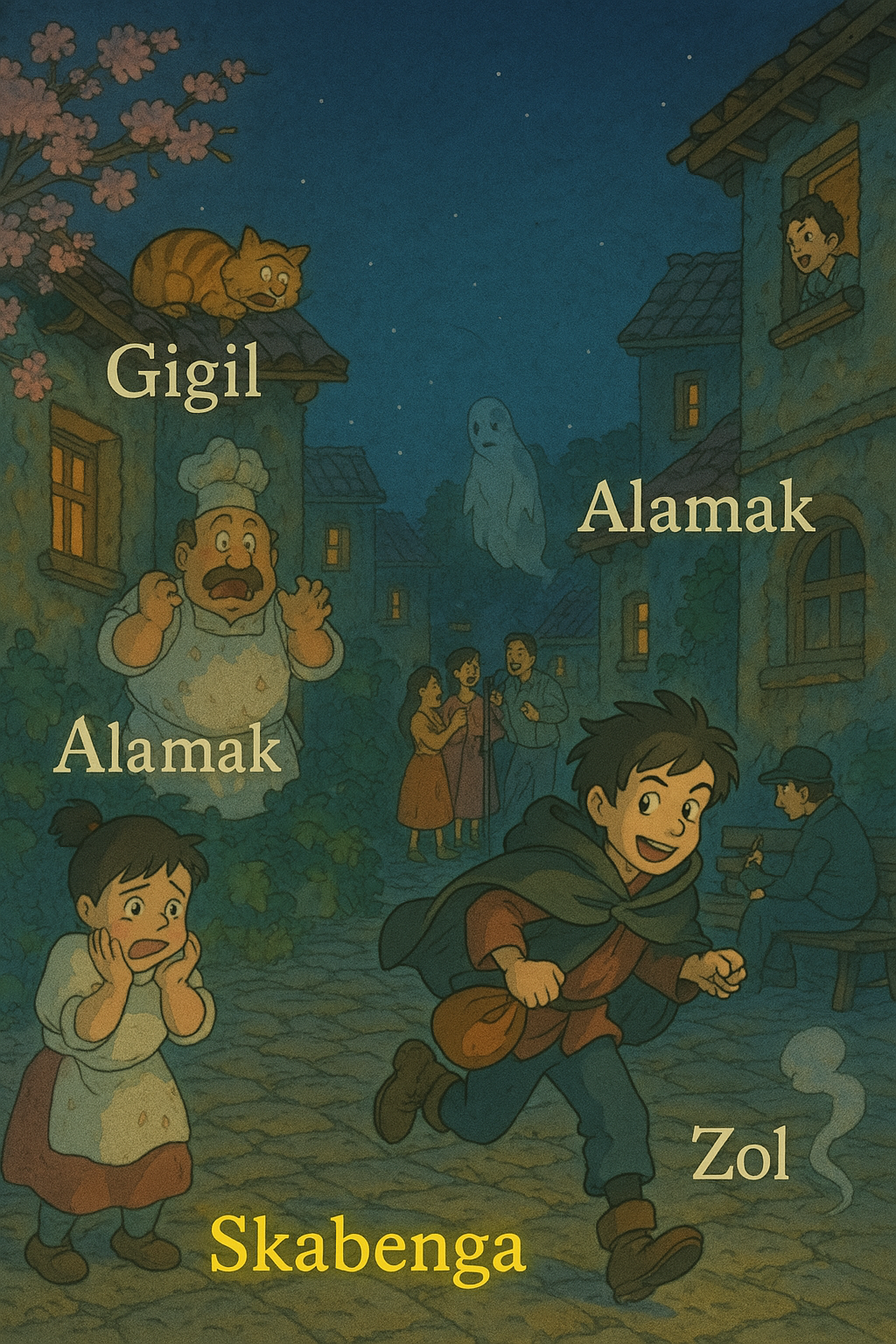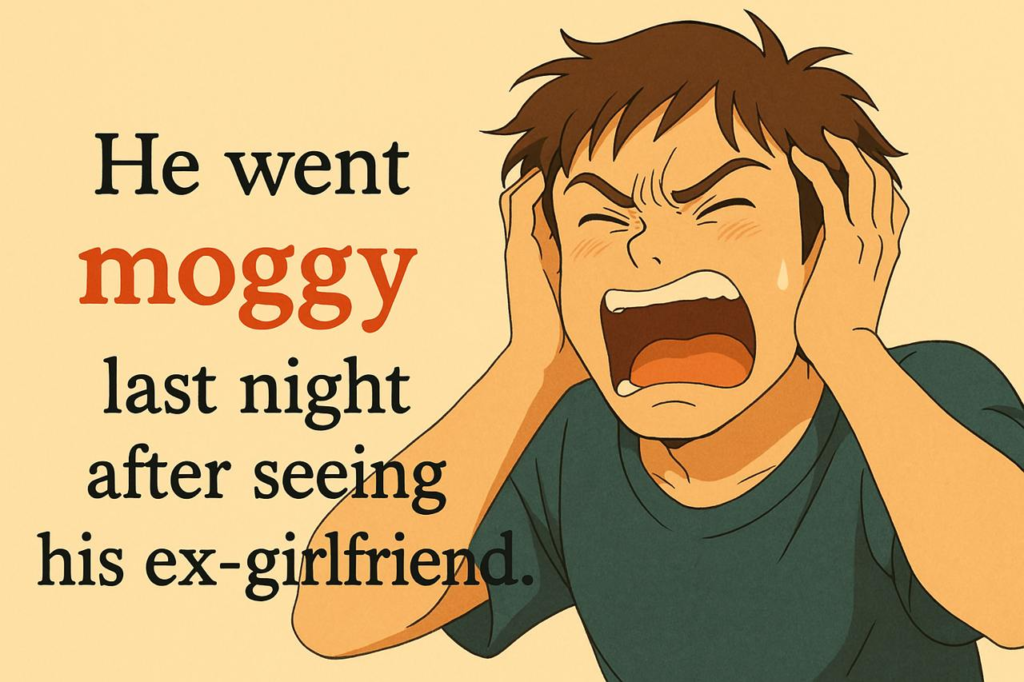
Many of the so-called ‘untranslatable words’ from around the world have been added in Oxford English Dictionary’s March 2025 update. Let’s look at some of the newly-added words in the ever-evolving dictionary:
1. GIGIL
‘Gigil’ is a term used in Philippine English. As per OED, gigil is “a feeling we get when we see someone or something cute, a feeling so intense that it gives us the irresistible urge to tightly clench our hands, grit our teeth, and pinch or squeeze whomever or whatever it is we find so adorable.”

For instance- You can say that you felt gigil while seeing this picture.
2. MOGGY
‘Moggy’ is an informal South African word. It means a person who is extremely irrational; or one who loses control of their emotions.
Example- a) He went moggy and chose to walk 1000 steps up the hill.
b) Tina was moggy after drinking in the pub last night.

3. ALAMAK
‘Alamak’ is a word used in Malaysian and Singapore English. It is used to express surprise, shock, dismay or outrage.
The exact origin of the word is unclear, but it might have derived from the Arabic word “aʿlā,” meaning ‘higher’ or ‘highest,’ or from “Allah,” the Arabic word for ‘God,’ paired with “mak,” meaning ‘mother.’ It could have originally been influenced by Portuguese phrases like “Mãe de Deus” (Mother of God) or “Santa Mãe” (Holy Mother), or other similar expressions. A similar interjection, “alamah,” is also used in Kristang, a Malay-Portuguese creole.
Example- a) I accidentally spilled my drink and said ‘Alamak!’ in frustration.
b) “Alamak, I forgot to bring my homework to class!”

4. MORTO
‘Morto’ is a word in Irish English. It means mortified or extremely embarassed.
Example- “She became morto after she sent the message meant for her friend to her boss.”

5. GATVOL
‘Gatvol’ is also a South African slang. It is used to describe a person who has had enough; one who is extremely annoyed, unhappy, or bored, especially with a state of affairs that has persisted for a long time.
Synonym- fed-up
Example- “I’m gatvol of dealing with their constant nonsense and I’m finally standing up for myself!”

6. VIDEOKE
‘Videoke’ is the Filipino version of karaoke. It is a form of entertainment in which a person sings the vocal line of a popular song to the accompaniment of a pre-recorded backing tape while following the lyrics which appear on a screen in time with the music. ‘Videoke’ is popular at bars and parties in Philippines.
Example- a) “After a few drinks, we turned the living room into a videoke stage, and it was pure chaos in the best way.”
b) “I can’t believe you sang that love song on videoke—you totally nailed it!”

7. LUDRAMAN
‘Ludraman’ is a colloquial and derogatory term in Irish English. It is used to refer to a lazy, unproductive, or stupid person.
The earliest evidence of this word’s use in English is in James Joyce’s Ulysses, in which the author spells it ‘loodheramaun’.
Example- a) “He’s such a ludraman, always coming up with excuses instead of getting things done.”
b) “Don’t be a ludraman, get off your phone and help with the cleanup!”

8. YOH
‘Yoh’ is a word of exclamation in South African English which is used to express various emotions or reactions, such as surprise, wonder, admiration, shock, or distress.
Example- a) “Yoh, I can’t believe you finished the entire pizza by yourself!”
b) “Yoh, this movie is so scary, I can’t watch anymore!”

9. SKABENGA
‘Skabenga’ is a South African slang meaning a robber; a gangster, a hooligan or a thug.
It is also used as a playful term to refer to someone who is mischievous, cheeky, or someone who is up to no good in a playful way. It can also be used to describe a troublemaker or someone who likes to cause a bit of chaos for fun.
Example- a) “Stop being such a skabenga and get back to work!”
b) “You little skabenga, you always manage to get into trouble!”
c) “The kids were being skabengas, hiding each other’s shoes to make everyone late.”

10. ZOL
‘Zol’ is a South African slang for marijuana. The OED defines zol as- A preparation of the marijuana plant, used as an intoxicating and hallucinogenic drug; esp. a crude preparation of the dried leaves, flowering tops, and stem of the plant, sometimes mixed with tobacco, in a form for smoking.
Example- “We grabbed some zol before the party to get the vibe going.”

Also read- Weird reasons for ban of 10 famous books






